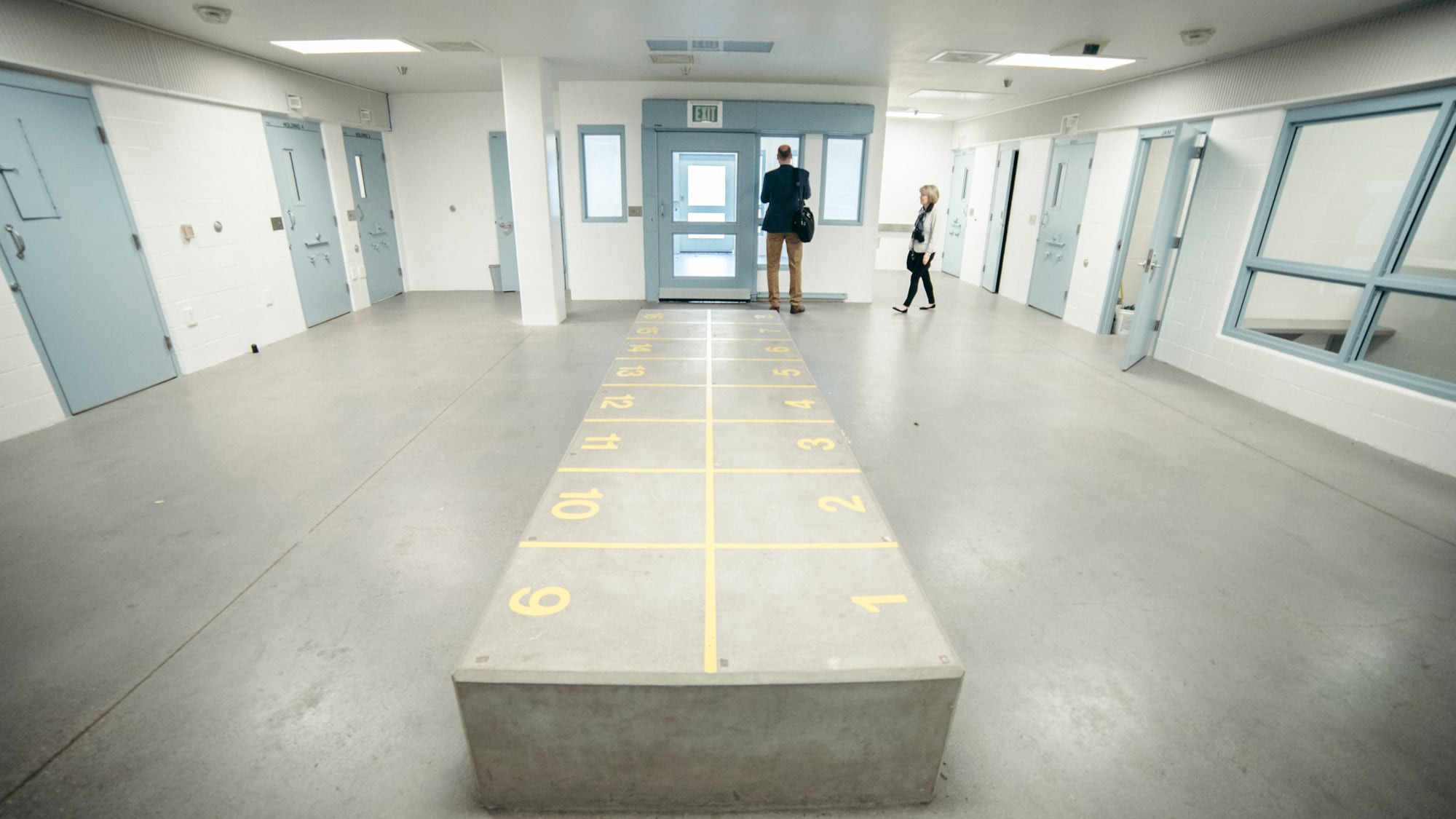Multnomah County Commissioner Loretta Smith has renewed her push to open the never-used Wapato Jail as a homeless shelter. But this time, the jail's new owner has issued an ultimatum: Fund a shelter, or he'll knock the building down.
Real estate magnate and philanthropist Jordan Schnitzer purchased Wapato from Marty Kehoe in late April, only a week after Kehoe purchased the property from the county for $5 million.
Smith, who is running for Portland City Council, estimates operating Wapato as a homeless shelter would cost $5 to $7 million annually. The building could fit 550 to 1,000 people.
Today, she asked city and county officials to divert public funds to partner with a non-profit to rent the building from Schnitzer and use it as as a shelter.
"We [spent] 60 million dollars on top of existing services for homelessness," Smith said. "We need to divert some of those funds for Wapato."
Multnomah County Chairwoman Deborah Kafoury has consistently opposed opening Wapato as a homeless shelter. Portland Mayor Ted Wheeler has been noncommittal.
Smith was the chief champion on the Multnomah County Commission for using the empty jail building as a shelter. The idea became a campaign issue in 2016, when Eric Zimmerman ran for a Multnomah County seat on the platform of having the county house homeless people in Wapato. He lost.

The idea is an election-season platform once again as Smith seeks a City Council seat. But this time, the clock is ticking.
Schnitzer says he is open to any lease term, but wants a proposal on paper by October 1—only 10 days away. And he says he'll demolish the building if he doesn't receive a proposal soon. "My sense is in the next 90 days, we'll see a wrecking ball out here," Schnitzer says.
Smith touted the building's amenities at a press conference on Thursday. Wapato's industrial kitchens could be an opportunity for job training, she said, and the medical and dental offices provide accessible service for residents.
Maura White, executive director of a social-services nonprofit called the Mother and Child Education Center, says the minimum-security facility could be made into a shelter relatively easily. There are few cells in the building; most residential portions feature an open floor plan that could accommodate families or individuals.
Land use restrictions prohibit using Wapato as a homeless shelter. Changing that would require consent from the City Council, county, state, and Port of Portland.
The building was built in 2004 with $58.4 million from a county bond measure and state funding, but has stood empty ever since. From 2013 until April 2018, the county searched for potential buyers.
Homeless service providers told county commissioners in 2016 that Wapato was too far from access to school, jobs, and clinics. However, shelter proposals in residential areas have been fought by neighbors. At a press conference on Thursday, Schnitzer acknowledged Wapato's shortcomings.
"Maybe the experts are right, it's the right building in the wrong place. But it's here, and it's built, and it's paid for," Schnitzer says.
Update, 6:58 pm:
Schnitzer tells WW he's placing an ultimatum on local officials because the Wapato Jail building is costing him $50,000 a month to maintain.
If he tears it down, he says, he'll build a warehouse. "We love building warehouses, but my first goal with this [was a shelter]."
Schnitzer says he's frustrated by local elected officials declining to respond to his offers to rent out the space. He says moving homeless people to Wapato is both the humane thing to do, and better for other people living and working in the city..
"It's not right for those who live in the city to have to deal with sometimes very aggressive folks who are causing people to not want to go downtown," Schnitzer tells WW. "Our heart goes out to the people in need and our heart goes out to the people who can't have use of their buildings and apartments."

